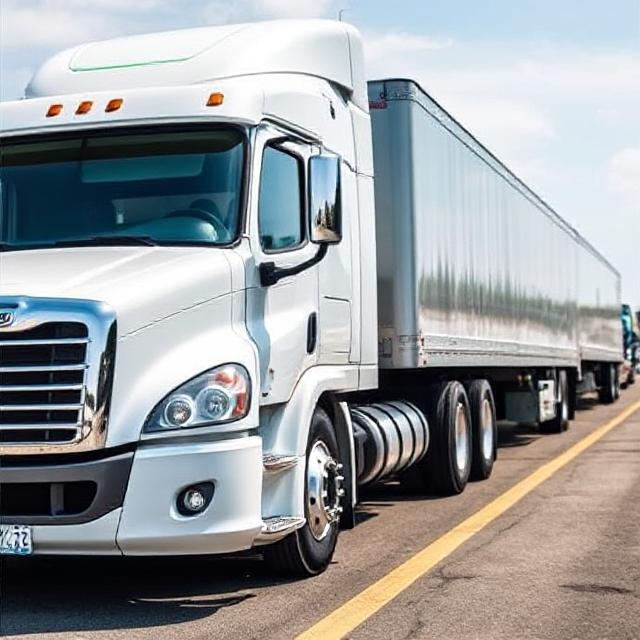Explore how switching to CNG trucks can boost your fleet’s bottom line and environmental impact—covering cost savings, emissions reduction, and long-term sustainability.
Switching to CNG Trucks: Financial and Environmental Benefits for Fleets
As sustainability and cost-efficiency become top priorities in the logistics industry, many fleet operators are turning to Compressed Natural Gas (CNG) as an alternative to traditional diesel. The result? Lower operating costs and a smaller environmental footprint.
This blog explores how making the switch to CNG trucks offers both financial and environmental advantages that are hard to ignore.
💰 1. Cost Savings on Fuel
One of the most compelling reasons for switching to CNG is significant fuel savings. On average, CNG is 25–40% cheaper than diesel per gasoline gallon equivalent (GGE).
- Fuel price stability: CNG prices are less prone to market fluctuations.
- Lower total cost of ownership (TCO): Over time, fleets save thousands annually per vehicle.
Example: A fleet using 100,000 gallons of fuel annually could save $25,000–$40,000 by switching to CNG.
🌎 2. Lower Emissions for Cleaner Operations
CNG is a cleaner-burning fuel, reducing:
- Carbon dioxide (CO₂) emissions by up to 20%
- Nitrogen oxides (NOx) by up to 90%
- Particulate matter to near-zero levels
These reductions support corporate sustainability goals and help fleets comply with stricter environmental regulations.
🔧 3. Reduced Maintenance Costs
Because CNG engines run cleaner, they lead to:
- Less engine buildup
- Fewer oil changes
- Longer intervals between maintenance checks
Fleets report reduced downtime and lower service costs, improving operational efficiency.
🚛 4. Available Incentives and ROI
Governments often offer financial incentives such as:
- Grants and rebates
- Tax credits for vehicle purchases
- Infrastructure development support
These incentives can offset the initial investment and reduce payback time to as little as 2–4 years.
♻️ 5. Sustainability as a Competitive Advantage
Sustainability isn’t just good for the environment—it’s good for business. Adopting CNG:
- Enhances your brand reputation
- Appeals to eco-conscious clients
- Prepares your fleet for future low-emission regulations
⚙️ 6. CNG Infrastructure Is Growing
CNG refueling stations are becoming more widespread in urban and highway corridors, making it increasingly feasible for regional and long-haul fleets to convert.
🔍 CNG vs Diesel: Key Differences
| Aspect | CNG Trucks | Diesel Trucks |
|---|---|---|
| Fuel Cost | Lower and more stable | Higher and volatile |
| Emissions | Low CO₂, NOx, PM | High emissions |
| Maintenance | Lower due to clean burning | Higher due to engine residue |
| Availability | Expanding nationwide | Fully established |
| Initial Investment | Slightly higher upfront | Lower initial cost |
| Long-Term ROI | Strong with incentives | Moderate |
✅ Final Thoughts
Switching to CNG trucks is a strategic move for fleets looking to cut costs, improve sustainability, and stay ahead of industry trends. With rising fuel prices and stricter emissions regulations, CNG offers a proven path forward.
Target Keywords:
- CNG truck benefits
- compressed natural gas fleet
- alternative fuel savings
- clean transportation solutions
- fleet sustainability
- CNG vs diesel cost
- green fleet strategies
- lower emissions trucking
- eco-friendly fleet conversion
- sustainable logistics

